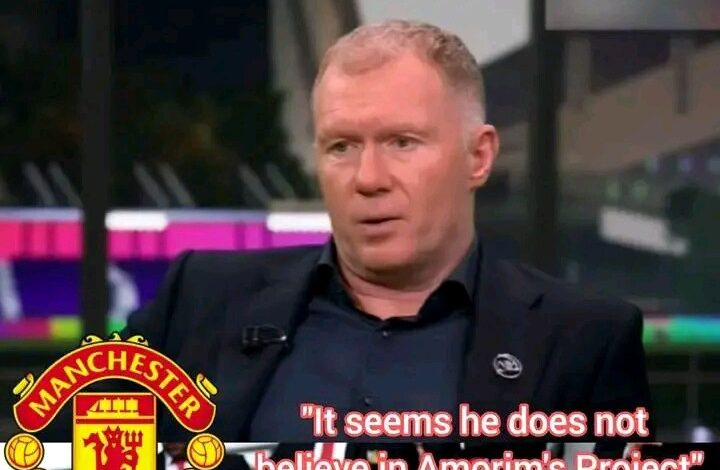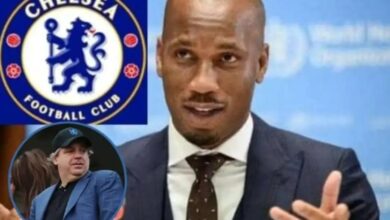Dan Ashworth stepping down after only five months as Manchester United’s sporting director is a massive blow to the club’s plans. This instability at the top level is concerning, and the board needs to act quickly to address it. It seems he does not believe in Amorim’s Project” – This is according to Paul Scholes raises questions about Manchester United’s direction following Ashworth’s departure. The expert suggests this could have a ripple effect on the club’s long-term strategies. Why does it always feel like there’s drama at United 😒💔 We can’t keep rebuilding every season 😒💔

Manchester United’s sporting director, Dan Ashworth, has stepped down after just five months in the role, marking a sudden and surprising end to his brief tenure. The unexpected departure has caused ripples within the club, given Ashworth’s impressive track record and the critical responsibilities he shouldered during his time at Old Trafford.
Ashworth officially began his duties on July 1, following a gardening leave period after leaving Newcastle United, where he had served as technical director. However, his time at United was cut short after a reportedly contentious meeting with the club’s CEO, Omar Berrada, in the aftermath of a disappointing defeat to Nottingham Forest. Speculation is rampant about the reasons behind his exit, with some suggesting that Sir Jim Ratcliffe, a part-owner of the club, played a key role in the decision. While some sources claim the club initiated the departure, Manchester United has described it as a “mutual agreement.”
At 53, Ashworth brought a wealth of expertise to Manchester United, overseeing player recruitment and performance. He reported directly to Omar Berrada, a recent addition from Manchester City, and worked closely with technical director Jason Wilcox. This revamped leadership structure, introduced under Ratcliffe’s guidance, aimed to modernize the club’s operations.
During his short tenure, Ashworth managed a high-stakes summer transfer window, with the club investing around £200 million on signings like Leny Yoro, Manuel Ugarte, Matthijs de Ligt, Noussair Mazraoui, and Joshua Zirkzee. In addition to recruitment, he played a role in extending Erik ten Hag’s contract, though Ten Hag was later dismissed, highlighting potential disarray in the club’s long-term planning.
Ashworth’s appointment followed lengthy negotiations with Newcastle United, where he was a respected figure. After expressing his desire to join United, a compensation package of £2–3 million was agreed upon—far less than Newcastle’s initial demand of £20 million. His recruitment was considered a significant win for United, given his stellar reputation from previous roles at Brighton and the Football Association, where he earned widespread recognition as one of the industry’s top sporting directors.
Ratcliffe had been vocal in his praise of Ashworth, describing him as highly capable and well-suited to help rebuild Manchester United into a dominant force. Despite these high expectations, their collaboration ended prematurely, leaving many to wonder what led to the breakdown.
Ashworth’s exit comes at a time when Ratcliffe has been increasingly critical of the club’s outdated methods. Recently, he described Manchester United as “mediocre,” citing weaknesses in recruitment and data analysis as significant barriers to success. He has called for sweeping reforms, including improved analytics and modernized recruitment practices, to bring the club in line with its rivals.
With Ashworth’s departure, Manchester United faces yet another leadership void, raising concerns about its ability to tackle ongoing challenges. These include modernizing infrastructure, building a competitive squad, and restoring the club’s status among Europe’s elite. Whether this setback propels United toward meaningful change or exacerbates their struggles remains uncertain. For now, Ashworth’s brief stint will be remembered as a missed opportunity in the club’s pursui
t of revival.




